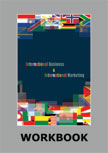Gazprom - Naftogaz Ukrainy Dispute: Business or Politics?
|
|
ICMR HOME | Case Studies Collection
Case Details:
Case Code : BENV003
Case Length : 15 Pages
Period : 1991 - 2006
Pub Date : 2006
Teaching Note :Not Available
Organization : Gazprom, Naftogaz
Industry : Energy
Countries : Europe, Russia
To download Gazprom - Naftogaz Ukrainy Dispute: Business or Politics? case study
(Case Code: BENV003) click on the button below, and select the case from the list of available cases:

OR

Buy With PayPal
|
Price:
For delivery in electronic format: Rs. 300;
For delivery through courier (within India): Rs. 300 + Rs. 25 for Shipping & Handling Charges
»
Business Environment Case Studies
» Case Studies Collection
» ICMR Home
»
Business Environment Short Case Studies
» View Detailed Pricing Info
» How To Order This Case
» Business Case Studies
» Case Studies by Area
» Case Studies by Industry
» Case Studies by Company
Please note:
This case study was compiled from published sources, and is intended to be used as a basis for class discussion. It is not intended to illustrate either effective or ineffective handling of a management situation. Nor is it a primary information source.
Chat with us

Please leave your feedback

|
|




<< Previous
Excerpts
Disputes with Ukraine
|
After the disintegration of the Soviet Union, Russia, the largest republic,
became the successor state to the Soviet Union, inheriting all its obligations
and entitlements. Russia was not willing to give up its influence over the
former republics of the Soviet Union. It agreed to supply gas and oil, apart
from various other things, to the former Soviet Union republics at a highly
subsidized rate and under favorable terms. This Russia did to keep the newly
independent states from deserting it. It perceived a threat to its power and
influence as well as to its security, if these countries joined the West and
allowed their military bases to be used by other powerful countries.
|

|
At the same time, Russia made use of the 'destination clauses' in its gas
agreements by which the recipients were prohibited from re-exporting
subsidized Russian gas to Europe. The disintegration of the Soviet Union
also led to the rise of complex problems between Russia and the newly
independent states, especially Ukraine. Soviet Union's Black Sea Fleet had
been headquartered at Sevastopol in Crimea. Crimea had been transferred from
the then Russian Soviet Federated Socialist Republic to the then Ukrainian
Soviet Socialist Republic in 1954...
|
|
Elections in Ukraine
In the 2004 elections to the Ukrainian Presidency, Prime Minister Viktor
Yanukovych (Yanukovych) and ex-Prime Minister Viktor Yushchenko (Yushchenko)
were rival candidates. Prime Minister Yanukovych was supported by the
outgoing President Leonid Kuchma and also by Russian President Vladimir
Putin (Putin). Yanukovych favored closer and better ties with his big
neighbor Russia. Yushchenko on the contrary, advocated closer ties with
the West and with the EU in particular. He was a champion of
market-oriented economic reforms... |
Turn of Events
The issue of increase in gas prices could not be settled and with the negotiations failing to bring about any mutually agreeable price, Gazprom decided to set the price on its own. On November 22, 2005, it announced that from 2006, Naftogaz would have to pay $160 per Tcm. Ukraine, while agreeing that gas prices should be raised, held that it should be done gradually, as its economy would not be able to withstand such a large price increase in such a short time...
Excerpts Contd...>>
|
|









